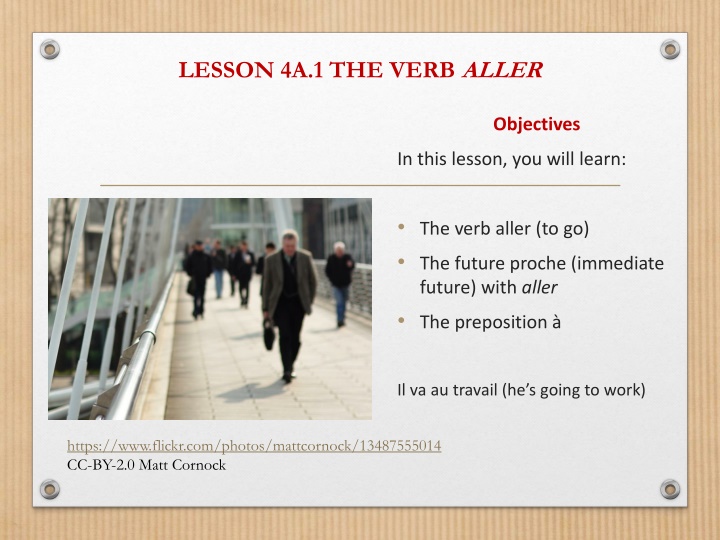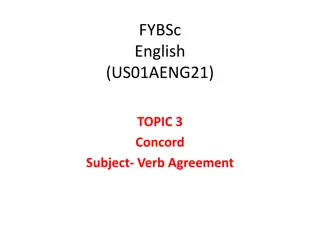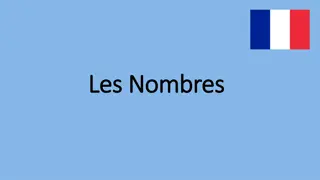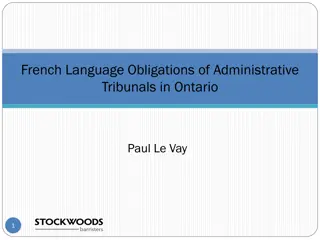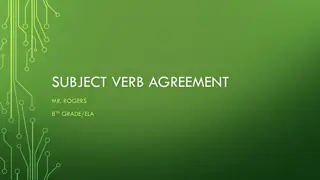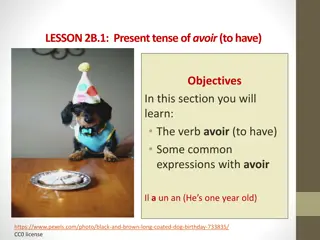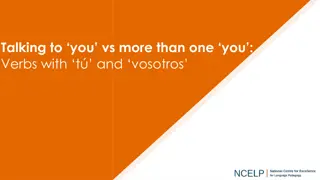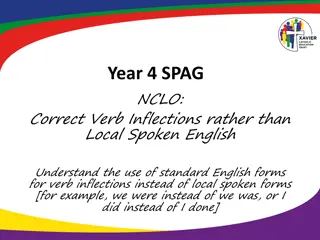Learning "The Verb Aller" in French
Explore the verb "aller" (to go) and the immediate future tense with "aller." Understand prepositions, conjugation, and usage in everyday contexts. Practice exercises included.
Download Presentation

Please find below an Image/Link to download the presentation.
The content on the website is provided AS IS for your information and personal use only. It may not be sold, licensed, or shared on other websites without obtaining consent from the author.If you encounter any issues during the download, it is possible that the publisher has removed the file from their server.
You are allowed to download the files provided on this website for personal or commercial use, subject to the condition that they are used lawfully. All files are the property of their respective owners.
The content on the website is provided AS IS for your information and personal use only. It may not be sold, licensed, or shared on other websites without obtaining consent from the author.
E N D
Presentation Transcript
LESSON 4A.1 THE VERB ALLER Objectives In this lesson, you will learn: The verb aller (to go) The future proche (immediate future) with aller The preposition Il va au travail (he s going to work) https://www.flickr.com/photos/mattcornock/13487555014 CC-BY-2.0 Matt Cornock
OVERVIEW -Tverb aller as an irregular verb. -It is also a very common verb and you must memorize the conjugation. Aller, like other verbs of movement, requires the preposition most of the time Example: Je vais la biblioth que (I'm going/I go to the library) Remember: Je vais au (= +le) bureau (with singular, masculine nouns) Je vais aux (= +les) caf s (with plural, masculine nouns) Je vais aux biblioth ques (plural, feminine nouns) With feminine nouns there is no change in the singular form: Je vais la classe/ la biblioth que
OVERVIEW You do not need in these cases: -With other prepositions besides Je vais chez-moi/ Je vais avec des copains -With another verb: This last form is called the immediate future Nous allons manger (We are going to eat) -In this case the second verb is not conjugated Elle va travailler cet apr s-midi (she is going to work this afternoon)
THE IMMEDIATE FUTURE There is another form of the future which is more formal and refers to actions or events that will take place in a not so immediate future. You will learn this form another semester and you do not need to learn it now. Example:J habiterai Paris en 2025 (I will live in Paris ) The difference between both is not so clear at times, and you can also say: Je vais habiter Paris en 2025 The important fact is that with the future proche you have a sense of immediacy in the future that is sometimes emphasized by dates o prepositions: Je vais travailler la semaine prochaine (I m going to work ) Nous allons manger apr s la classe. Notice also the negative form: Nous n allonspas manger ce soir Je ne vais pas travailler demain
MORE PRACTICE This is a full exercise about prepositions and the verb aller. Complete the following sentences with the correct preposition: sur (in/on), au (at/in the masculine), la (at/in-feminine), en ville (to/in the city). You must know the gender of the noun 1. Vous allez rencontrer vos professeurs_______terrasse (fem) du caf . 2. Votre professeur va vous demander d aller_________ville (fem.) 3. Vous aller d jeuner________restaurant avec d autres tudiants 4. Le soir vous pouvez (can) aller______cin ma (masc.) ou_________piscine (fem.) 5. Lundi, vous allez___________kiosque (masc.) (Notice the expression: en ville, in the city) Answers: 1. la 2. en 3. au 4. au, la 5. au CC-BY-Roger Celis
